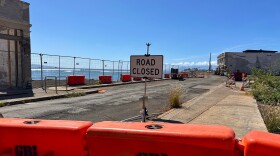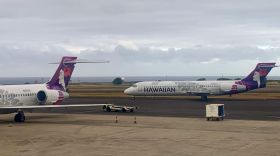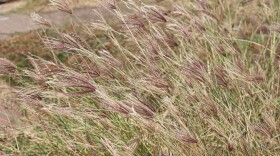-
HPR talked to Gov. Josh Green soon after a U.S. Supreme Court decision on tariffs, plus his thoughts about the recent headlines involving Lt. Gov. Sylvia Luke.
-
A stage production about a Hawaiian musician who we can thank for inventing the sound of the steel guitar and slack key has been back for a second season. HPR talked to Moses Goods, who is credited with writing the production, about taking this show on the road.
-
For the Hawaiian Humane Society, the 2026 legislative session could be a path toward stricter animal welfare regulations, harsher penalties for mistreatment, and opportunities for combating animal overpopulation.
-
House Bill 1694 creates a tax credit to encourage the production of sustainable aviation fuel, a lower-carbon alternative to conventional jet fuel.
-
A movement in Canada is having an impact on Hawaiʻi as more Canadians choose not to travel to the Islands. We get more on that story from Pacific Business News Editor in Chief Janis Magin.
-
About 842 “ultra luxury” homes on Hawaiʻi Island are worth at least $4 million, and the county’s lawmakers could add a new, higher property tax tier for them.
-
Lawmakers have deferred a bill that would have set up the infrastructure to regulate a recreational marijuana program. It’s one of several pieces of marijuana legislation that have stalled this legislative session.
-
A push to ban commercial aquarium fishing in Hawaiʻi originally came from Hawaiʻi County, where it received nearly unanimous support. Now at the state level, the movement has received dozens of testifiers against it.
-
Hawaiʻi had its second driest year in more than a century in 2025. About half the state experienced some level of drought, and average temperatures were up to a degree higher than normal across the islands.
-
Hawaiʻi lawmakers are weighing tougher ways to deal with feral chickens, as residents complain about noise, mess, and growing flocks.
-
Architect, community leader and former HPR board member Francis Oda has died. He was a cofounder of the local design firm G70. He served on the HPR board for several years and was chair in 2021.
-
A family-owned mochi shop in Honolulu has been gearing up for Lunar New Year festivities, where it's common to swap sweet treats with family. HPR recently took a trip to Fujiya Hawaiʻi, which has been in business since 1953.















